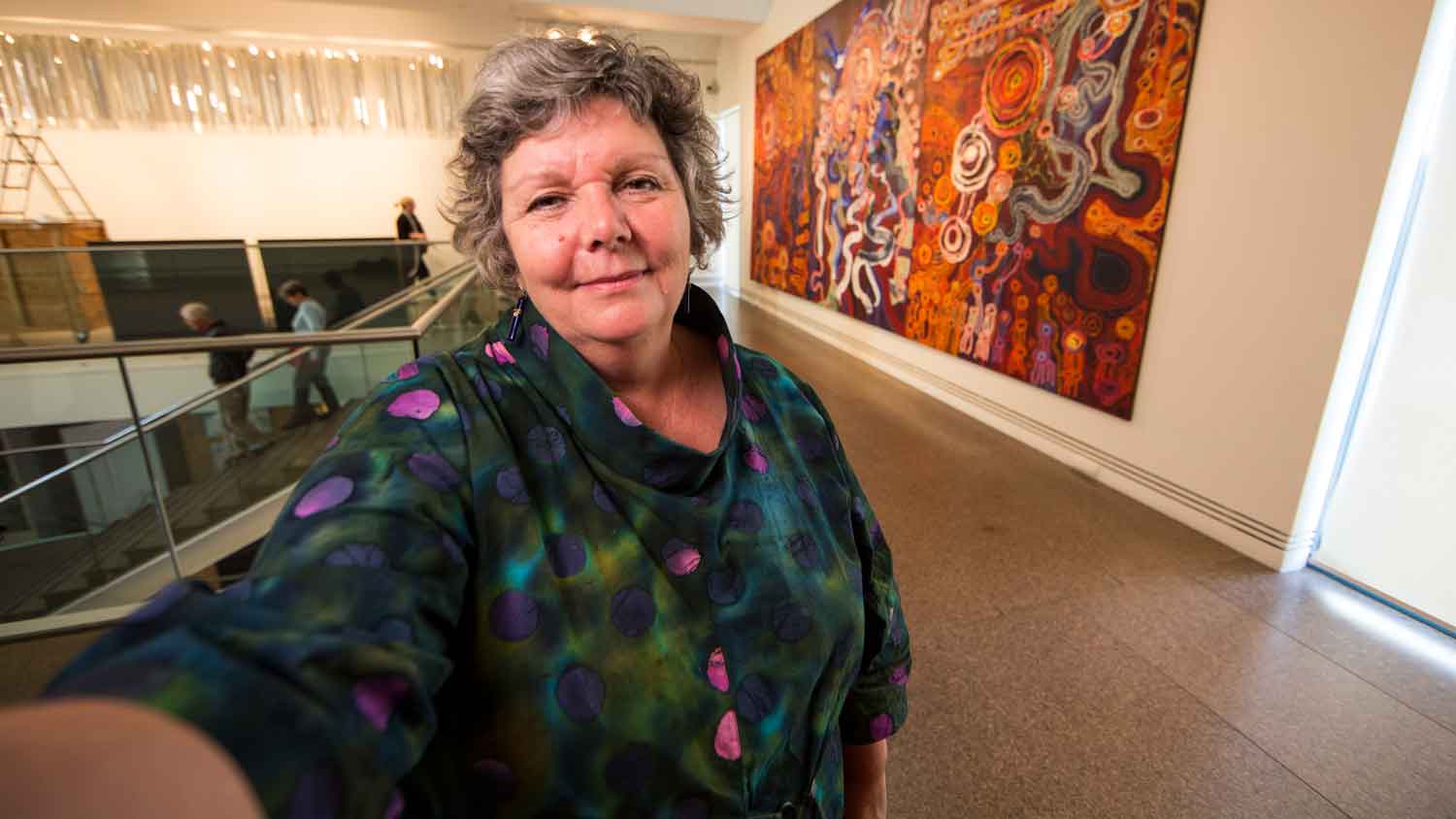09 agosto 2018

With thousands of artists involved since its inception in 2015, TARNANTHI is arguably the most ambitious and supportive celebration of contemporary Aboriginal and Torres Strait Islander art in Australia.
TARNANTHI is curated by Artistic Director Nici Cumpston, herself a descendant of the Barkindji people of the Darling River, in far west New South Wales. She is also the Art Gallery of South Australia’s Curator of Aboriginal and Torres Strait Islander Art.
TARNANTHI was born out of a collaboration between the State Government of South Australia, BHP and the Art Gallery of South Australia. It is BHP’s largest cultural investment in South Australia.
“My brief was to meet and develop relationships with artists from around Australia, and to engage with arts organisations as partners, to deliver exhibitions across Adelaide,” said Nici.
“In order to come up with a name for the Festival, we spent a few months working with Kaurna Elders, the traditional owners of the Adelaide Plains, at Kaurna Warra Pinyanthi, the Kaurna language unit at Adelaide University. Tarnanthi, pronounced tar-nan-dee, means to come forth or appear – like the sun and the first emergence of light. For many cultures, first light signifies new beginnings.”
Since then, it has blossomed into an annual celebration, illuminating the diversity and depth of Aboriginal and Torres Strait Islander art by alternately staging an expansive city-wide festival in one year then a focus exhibition the following year. TARNANTHI also includes an annual Art Fair, artist talks, performances and events.
“It is a ground-breaking opportunity that brings hundreds of artists to South Australia between October and January each year, where they can meet and engage with each other, as well as curators, collectors and the general public through extensive public programs and events,” Nici said.
With the support of TARNANTHI, artists have been provided with the opportunity to create and develop ambitious concepts and ideas.
“Through respectful partnerships with individual artists and artists at community-based art centres, we discuss their ideas and then provide the creative and financial support required for them to develop their projects. Through the exhibitions and catalogue, TARNANTHI gives the artists a national platform on which to present their works of art,” Nici said.
TARNANTHI this year will focus on the forty-year career of master bark painter John Mawurndjul AM, alongside the TARNANTHI Art Fair, which runs for three days at Tandanya National Aboriginal Cultural Institute. John Mawurndjul: I am the old and the new presents the masterful fusion of traditional and contemporary art from one of Australia’s greatest living artists. It is a collaboration with the Museum of Contemporary Art (Sydney), the Art Gallery of South Australia and Maningrida Arts and Culture in Arnhem Land.
Nici said curating an ambitious collection of art is all about having a keen eye and keeping your ear to the ground.
“I travel throughout Australia constantly, meeting artists, visiting communities and listening to what works of art and projects are developing. TARNANTHI has enabled us to provide meaningful support to artists with potential to create groundbreaking works of art,” she said.
“With the support of organisations like BHP and their Olympic Dam project in South Australia, we are able to support the ongoing development of projects that in some cases can take years to develop. For example, the bilingual exhibition and publication John Mawurndjul: I am the old and the new has taken three years to develop. It is the first time that we are able to present an exhibition in the artist’s first language, Kuninjku, translated into English. Because of that, we have really been able to see the works of art and their importance to the artist from his perspective – it has been a revelation for us all.”
“BHP’s support has changed the way we are able to work with artists and has enabled artists to expand their ideas. Artists have extended their practice and are working across mediums, incorporating sound and moving image to share varying aspects of their stories. TARNANTHI is showcasing the breadth and depth of contemporary Aboriginal and Torres Strait Islander art, on a scale that hasn’t been seen before.”
